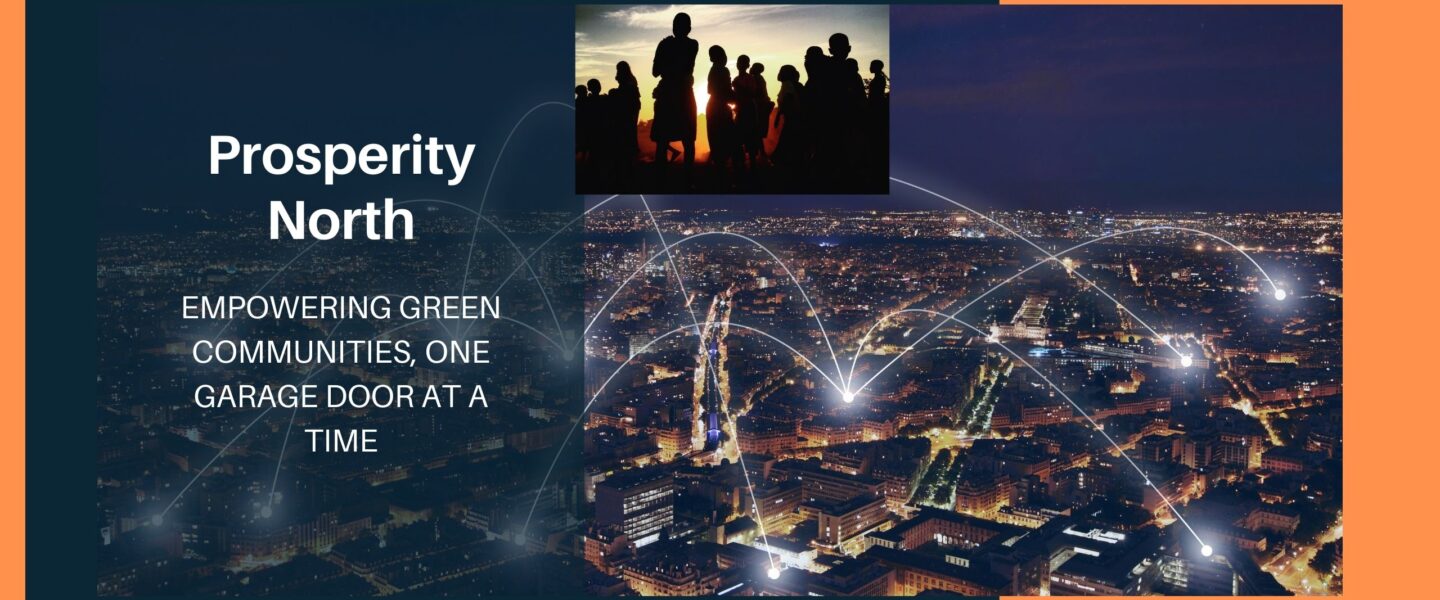The significance of sustainable practices and low energy use in today’s world is huge. Individuals, organizations, and companies must move toward more environmentally friendly practices as global warming and climate change continue to have detrimental effects on our planet. The part that garage door professionals play in encouraging energy efficiency and sustainability in our communities is one that is frequently forgotten in this effort. Professionals in this field assist homes and businesses in being more sustainable by installing and maintaining energy-efficient garage doors.
The Value of Garage Doors That Save Energy:
Most homeowners and businesses utilize their garage doors more than any other entrance. They can be a major source of heat transfer to or from a structure throughout the year. Therefore, a garage door that can save energy is essential for a sustainable home. Energy-efficient garage doors not only help lower a building’s carbon footprint and greenhouse gas emissions, but they also save money on monthly power costs.

Weatherproofing and Insulation:
Insulation is a major element of garage doors designed to conserve energy, as it keeps the interior at a constant temperature and prevents drafts. Depending on the local temperature, the orientation of the building, and the intended purpose of the garage, garage door repair experts can recommend the best insulation material. In areas where the seasons change rapidly and dramatically, insulation can reduce heating and cooling costs significantly.
Weatherstripping is just as important as insulation for keeping garage doors draft-free and saving on utility costs. By filling in the cracks around a door’s perimeter, weatherstripping helps keep warm air in and cold air out. Building owners may maintain pleasant internal temperatures and reduce their energy costs by having garage door professionals install and maintain appropriate weatherstripping.
Fabrication and construction:
The performance of garage doors depends not only on the type of materials used, but also on the design. Professionals in the garage door industry can advise clients on eco-friendly options, such as recycled or salvaged wood, and energy-saving layouts. Low-E glass in windows can assist reduce heat transfer and enhance energy efficiency, while doors constructed of steel or aluminum with a high recycled content can be an environmentally beneficial option.
The garage door’s thermal performance can also be affected by its aesthetic appearance. Insulated panels, thermal breaks, and air barriers are just some of the energy-saving improvements that can be recommended by garage door experts.
Smart garage doors can save on energy costs and help the environment in other ways. Smart garage door openers, which are installed by garage door professionals, let homeowners and business owners control and monitor their garage doors from anywhere using a smartphone app. By encouraging consumers to shut their garage doors when they aren’t using them, this feature helps cut down on energy waste and costs.
Better building-wide energy management is possible with the help of smart garage door openers that can be coupled with other home automation systems. By linking the garage door opener to a smart thermostat, for instance, the system can optimize energy usage by adjusting the internal temperature when the garage door is opened or closed.
Upkeep and Fixing:
Garage doors need to be maintained and fixed on a regular basis to keep them functioning efficiently and for as long as possible. Lubricating moving components, adjusting the alignment of the tracks, and checking the weatherstripping for signs of wear and tear are all things that a professional garage door service can accomplish. Professionals who specialize in garage doors may assist save money and time by keeping them in good working order to prevent unnecessary wear and tear.
Awareness and Learning:
Professionals in the garage door industry also play a critical role in educating the public on the value of reducing waste and conserving resources. Garage door companies may aid in creating a more sustainable future by informing consumers about the many ways in which installing energy-efficient garage doors can benefit their homes and businesses.
Experts in the field of garage doors can also speak at local conferences, workshops, and seminars to spread the word about the importance of energy conservation and green door maintenance. They can encourage people to live more sustainably by participating in the local community and disseminating useful knowledge.

Responsible Garbage Collection and Recycling:
It is important to properly dispose of old garage doors when they are no longer usable or being replaced. Recycling and correct disposal of old garage doors and their parts might be difficult, but professionals in the field can help. Garage door professionals may aid in the conservation of natural resources by collaborating with recycling facilities to ensure that components like steel, aluminum, and wood are recycled or reused.
Conclusion:
Professionals in the garage door industry play a significant role in advancing local efforts toward greater energy efficiency and environmental responsibility. They help create a greener, more energy-efficient future by installing and maintaining energy-efficient garage doors; proposing eco-friendly materials and designs; incorporating smart technology; and spreading awareness of the need of sustainable practices.
Demand for energy-efficient garage doors and the services that go along with them will rise as homes and businesses become more conscientious of their influence on the environment. Garage door professionals may assist their clients in saving energy, lowering their carbon footprint, and having a long-term good influence on their communities by adopting sustainable practices and remaining current on the latest developments in energy efficiency.

